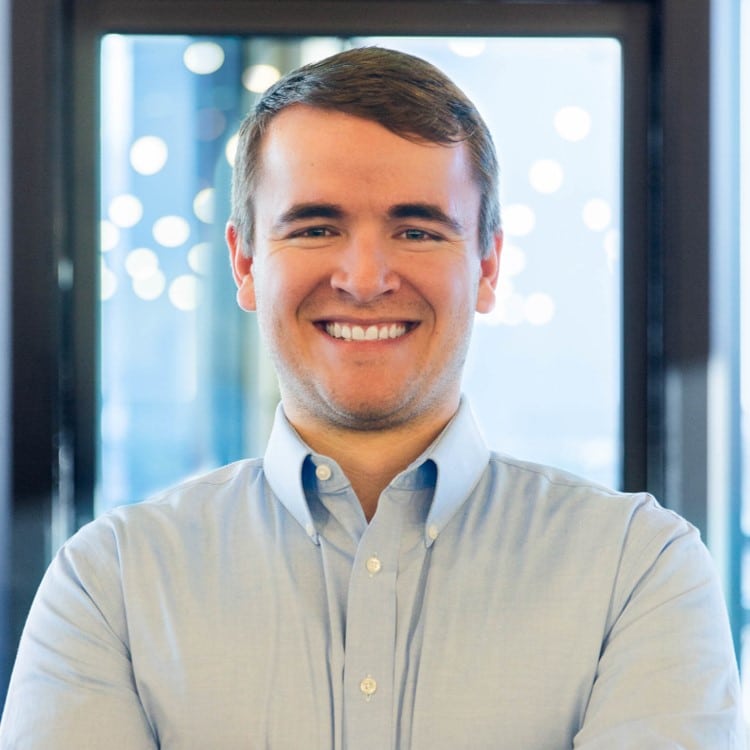You may have recently graduated from college, started your career, got married, or had children. These events often rightfully serve as a trigger to start intently considering your financial future. Now, what should you do?
With this in mind, we contacted several personal finance authorities to get their take on what young professionals and emerging households should be doing with their money to build a solid foundation for the future: We received valuable input and direction from each of the following money experts:
- Jeff Proctor, Co-founder of DollarSprout.com
- Todd Tresidder, Financial Coach at FinancialMentor.com
- Marc Andre of VitalDollar.com
- Dave Lowell, CFP at Up Your Money Game
- Riley Adams, CPA at Young and the Invested
- Brian Meiggs, Founder of My Millennial Guide
- Camilo Maldonado, Co-founder of The Finance Twins
There are a lot of things that you could be doing at this stage of life, but combining the counsel from each of these experts, we were able to piece together a concrete plan to build a foundation for your financial future that follows this direction:
- Start saving
- Use a budget
- Build an emergency fund
- Avoid debt
- Start investing
- Invest in yourself
- Increase your earnings
- Optimize as you go
This list does create a natural and logical order of operations, but that doesn’t mean you need to follow this exactly. It is more important to understand the concepts and implement each sooner rather than later as you work towards financial security.
Start Saving
Saving money is a great habit to get into right out of the gates. The earlier that you can start doing so, all the better.
Todd Tresidder of FinancialMentor.com explains that one of the two most important ratios in determining your financial outcomes is savings rate. “In the early stages, [one of the two key ratios is] your savings rate as a percent of your spending.” He continues, “That means young professionals and recent graduates should focus on… maximizing the percent of your income going to savings.”
You can create a goal to save a certain amount each month. Many experts recommend starting with 10-15% of your gross income. But, at a minimum, make sure to maximize any employer contributions that your employer offers. Then you can work to increase your savings rate more over time as you optimize your finances.
Use a Budget
If you aren’t currently saving as much as you would like, budgeting can likely help you reach your goals.
Camilo Maldonado, one of The Finance Twins, explained, “The most important thing you can do as a young professional is tracking your spending. This means building an understanding of how, when, and on what you are spending your money on. This skill will allow you to make a budget and to plan for your future expenses. Financial discipline is like a muscle that you have to exercise and build up. If you do that, it’ll set you on the path to start saving and investing.”
Creating a budget is about more than just finding ways to cut spending. Marc Andre of VitalDollar.com explains, “I think tracking your expenses can be extremely helpful because it allows you to see exactly where your money is going, which can be surprising.”
As you become aware of your spending behavior, you will be able to choose where you do and don’t want to spend. If you do not think you are disciplined enough to keep a consistent budget, at least commit to reviewing your monthly expenses intermittently and setting goals to improve where possible.
Build an Emergency Fund
When you start saving money, you should direct a portion of savings towards building an emergency fund.
Marc Andre also said, “I think it’s important for young professionals and recent grads to start building up savings in case of emergency. Having enough money in savings to cover all of your living expenses for 3-6 months is a good goal.”
A liquid emergency fund can protect your family and finances from unexpected expenses. For your financial foundation, it is critical to avoid the negative impact that can come from sudden job loss, car or home repairs, medical emergencies, or natural disasters.
Avoid Debt
Brian Meiggs of My Millennial Guide says, “In order to take control of your financial future, you should focus on living a debt-free lifestyle.”
A common mistake that young professionals make is to go out and buy a brand-new car, splurge on credit cards, or overspend on a house. Avoiding this urge will make it easier to stay on track to achieve financial security.
“If you currently have student loan debt, credit card debt, or other types of consumer debt then you should work out a feasible budget and recalibrate your life in a way that frees up more cash for debt payments,” Brian Meiggs continued.
Emphasize getting out of debt to free up additional cash flow. While there are certain types of debt that can have a positive return on investment, it is still important to work towards eliminating it quickly. After paying off any debts, save up before making purchases in order to avoid going back into debt.
Start Investing
With the additional cash flow that you have from paid off debts or after you have built your emergency fund, you can start investing.
Dave Lowell, a Certified Financial Planner at Up Your Money Game says, “Start investing in stocks early on. Recent studies show that far too many millennials do not have enough equity exposure in their portfolios and they are keeping a lot of money in cash. Part of this is due to lack of confidence and experience with investing and feeling like investing is risky. The earlier you learn about investing in stocks/equities the more comfortable you become with it. Investing aggressively early on for the long-term has drastic effects on a portfolio come retirement.”
The impact of starting to invest early is substantial. An individual that starts saving ten years earlier than another could save half as much per month with the same result at retirement.
Increase Earnings
You will be able to accelerate your savings potential and investment contributions by increasing your earnings. This is particularly true if you have developed other good money habits.
Brian Meiggs expanded on his advice to avoid debt by articulating, “Equally important is also finding ways to earn extra cash to maximize your income as a way to pay off your debt. Don’t stop there though, keep finding ways to save and earn more money and monitor your progress as you go.”
Todd Tresidder also elaborated on his earlier comments by explaining that the second area for young professionals and recent graduates to focus on is “Maximizing your income growth so you can afford to save more and still lead a comfortable life. In practical terms, that means it’s most important to invest in yourself to maximize your earning capacity.”
Invest in Yourself
Although he was unfortunately not in our group of personal finance experts to provide advice, Warren Buffett broadly proclaimed, “The best investment you can make is in yourself.” It’s hard to refute what one of the best investors in the world has to say about investments. This is undoubtedly one of the best ways to increase your earning potential and to improve as a person.
Jeff Proctor of DollarSprout.com agrees with the advice to invest in yourself and provides insight on how to do so. He says, “My biggest piece of advice for recent graduates is to continue investing in your own education for your career. Your earning power is usually directly related to the value you bring to the marketplace, and one of the best ways to make yourself more valuable is to have knowledge and skills that are rare. Just because college is over does not mean you are done learning! Invest in courses, seminars, conferences, and even small entrepreneurial side projects to further develop your professional skill set.”
Optimize as You Go
As you take the time to learn and invest in yourself, you will undoubtedly discover additional ways to optimize your finances and take advantage of the unlimited opportunities presented in the modern economy. This, however, is not the first step towards financial security. You can’t optimize until you have first established the fundamentals.
Two relevant pieces of advice that you can apply to optimize your finances at this stage in your life include using Health Savings Accounts and workplace retirement plans.
Camilo Maldonado added to his previous comment to track spending by suggesting, “Make sure you participate in your workplace retirement plan. Contribute as much money as you can for retirement. It’ll be the #1 thing you can do to retire comfortably. And no, it’s never too early to plan for the future.”
Riley Adams, a CPA and the creator of Young and the Invested, suggested using an HSA during this stage in your life by saying, “I’d strongly suggest considering enrollment in a high deductible health plan which provides access to a health savings account and then maxing out those contributions as soon as possible. While you are young, you are in the best health of your life and likely have lower healthcare needs. As a result, you want to take advantage of this youth and set aside as much money in this valuable tax-advantaged account as possible for when you will need the funds down the road. If you set this money aside into investments which compound over time, you’ll have time, compounding returns, and tax preferences working to your advantage.”
These both demonstrate the advantages of optimizing your finances. As you establish your financial fundamentals and learn more about personal finance, you will be able to recognize and realize these opportunities, too.
Conclusion
Personal finance doesn’t have to be complicated. The simplest things often make the most significant difference, especially when you are just getting started on your financial journey. Start to develop a foundation of good money habits early on in your life. Your future will thank you.






